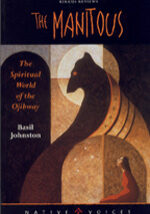In 701 B.C. the Assyrian empire was in its ascendancy. It had already vanquished the kingdom of Israel to the north including the capital at Samaria. It then prepared an assault on Judah and its capital at Jerusalem.
But in one of those significant events that changes the course of world history, Assyria was repelled. Jerusalem was saved until 586 B.C. when the Babylonians sacked the city, forcing its leadership class into exile.
Henry Aubin, in a major feat of scholarship, determines that Jerusalem was aided by a Kushite army from Africa which had marched northeast from the Nile valley. While the Bible attributes the Assyrian retreat to an angel and secular commentators cite pestilence, Aubin, in a meticulously documented work, demonstrates that an alliance with the African nation of Kush bolstered Jerusalem’s defences.
Kush, also known as Nubia, was located in what is now southern Egypt and northern Sudan. A monarchy that existed for more than 1000 years, from 900 B.C. to A.D. 350, Kushites held sway over Egypt from 712 B.C. to about 660 B.C. Of Egypt’s 31 dynasties, this, the 25th Dynasty, is the only one that all scholars agree, was black.
The commander of the Kushite expeditionary force was Taharqa (or as the Bible calls him Tirhakah). This Kushite prince, who had his own interests in halting Assyrian expansion, likely caught the aggressors by surprise as they prepared their siege of Jerusalem.
Aubin offers a thrilling military history and a stirring political analysis of the ancient world. He also sees the event as influential over the centuries.
The Kushite rescue of the Hebrew kingdom of Judah enabled the fragile, war-ravaged state to endure, to nurse itself back to economic and demographic health, and allowed the Hebrew religion, Yahwism, to evolve within the next several centuries into Judaism. Thus emerged the monotheistic trunk supporting Christianity and Islam.

“An extraordinary glimpse into a rich and meaningful mythology”
Kirkus
HarperCollins US/95
Key Porter CAN/95
Minnesota Historical Society Press/Reissue 2001
THE MANITOUS:
The Spiritual World Of The Ojibway
A major work, this is the first discussion by a Native scholar of the mysteries represented by manitous, totems, weendigoes and other spirits in Ojibway belief.
The Ojibway or Chippewa refer to themselves as Anishinaube, or “the good beings.” Sharing the same language and beliefs are groups known as Algonquin, Ottawa and Pottawatomie, which together form the largest or second largest aboriginal nation north of Mexico.
Drawing on rich Ojibway legends and tales, Johnston illustrates how these stories reflect Ojibway understanding of human nature.
Leading from a description of Kitchi-Manitou or The Great Mystery which presents the Ojibway notion of God, Johnston brings in the delightful, all-too-frail aspects of human nature personified in the four Manitous, the sons of the West Wind and Winonah.
Like the Bible, these express a code for moral behaviour which Johnston illuminates with liveliness and depth.
Basil Johnston is the foremost writer and scholar of Ojibway and native life. His seven books include Ojibway Ceremonies, Ojibway Heritage, Moose Meat and Wild Rice, and Indian School Days, all in print in Canada and the U.S.
His boyhood memoir, Indian School Days was hailed by Louise Erdrich who wrote: “Both a dark tale of assimilation at its most hypocritical and a hilarious account of an irrepressibly energetic boy thrust into a stern world where wit and humour become the means to survival… It is a work to further the understanding and enrich the heart.”